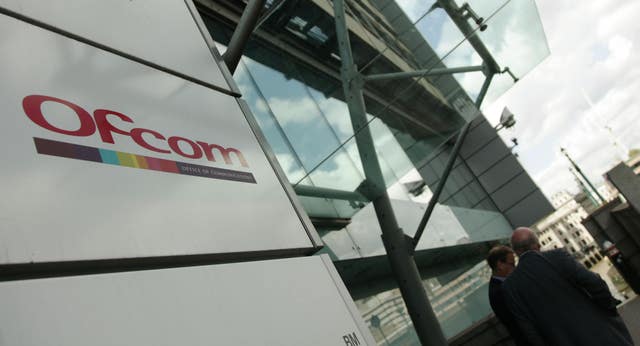
Ian Payne 4am - 7am
27 November 2024, 14:04

New research from the regulator said 71% of those said they had seen misinformation online, and the content was often linked to politics.
Four in 10 adults in the UK have encountered misinformation or deepfake content in the previous four weeks, according to new research from Ofcom.
New research from the regulator, carried out in the week before the UK general election on July 4 found that people were most likely to have seen false or misleading information about UK politics, followed by international politics and current affairs, and health information.
Concerns have been raised by a number of industry experts and academics about the rising threat of misinformation and in particular deepfakes, artificial intelligence-generated or manipulated images, video and audio, content which a number of leading UK politicians have been the subject of in the last year.
The rise of deepfakes has also dented people’s confidence in their own ability to spot misinformation, Ofcom’s research showed, as although 45% said they felt confident in being able to judge whether sources of information were truthful, that dropped to only 30% when it came to being confident in judging whether an image, audio or video had been generated by AI.
And although 24% of those asked said they deal with misinformation by checking the details on a trusted news website, the research also showed scepticism in traditional news sources and production processes, with misinformation fuelling mistrust.
The study found that 29% believe there is a single group of people who secretly control the world, while 42% said they think that important news stories are covered up by traditional news sources, and less than a third (32%) agree that journalists follow codes of practice.
Under the upcoming Online Safety Act, regulator Ofcom will gain additional duties to help improve media literacy across the country, including helping to build awareness of how people can protect themselves and others online.
The new research has been published on the day Ofcom announced the appointment of a chairman to its new Disinformation and Misinformation Advisory Committee, which will provide guidance to Ofcom on how the regulator and the online services in scope of the Online Safety Act should deal with disinformation and misinformation on those services.
Marijus Briedis, a cybersecurity expert at NordVPN, said misinformation was currently “rife” in the UK, and Ofcom’s report showed that the Government and the media “urgently need to take action to tackle its damaging effects.
“AI plays a massive part in spreading misinformation — creating false but convincing narratives has never been so easy.
“Hackers use AI to spread malware and scams and carry out cyberattacks,” he said.
“One of the more sophisticated scams we see is the AI ‘deepfake’.
“These are computer-generated copycats designed to mimic the look and sound of well-known people or public figures.
“Deepfakes of politicians or journalists may be an easy way to spread misinformation and even convince you to part with your money.
“Nearly two-fifths of people were fed false information ahead of the general election, highlighting the need to tackle this in order to preserve democracy.”

He added: “A deepfake of Martin Lewis was recently used to scam a victim out of £76,000 by convincing them to invest in a fake investment scheme.
“We hear about these cases all the time.
“They are becoming more convincing and can look extremely realistic to the untrained eye.
“Look out for sudden head movements that can reveal blurry edges to the figure on film, or unusual changes to the lighting.
“The way a deepfake is grafted to the image of the real person can be startlingly smooth, making the final result seem shiny, or as if a social media filter had been applied to it.
“Mouth movements may also appear unnatural.
“The spread of misinformation is not just about the technology being used by fraudsters.
“It also relates to the use of social media bots that post news without any evidence or context, thanks to the lack of regulation on these sites.
“A petition calling for a fresh general election in the UK recently gained over two million signatures thanks to encouragement from people with millions of followers.
“Unfortunately this display of democracy also encouraged signatures from as far afield as Russia and North Korea.
“This again fuels the spread of misinformation.”